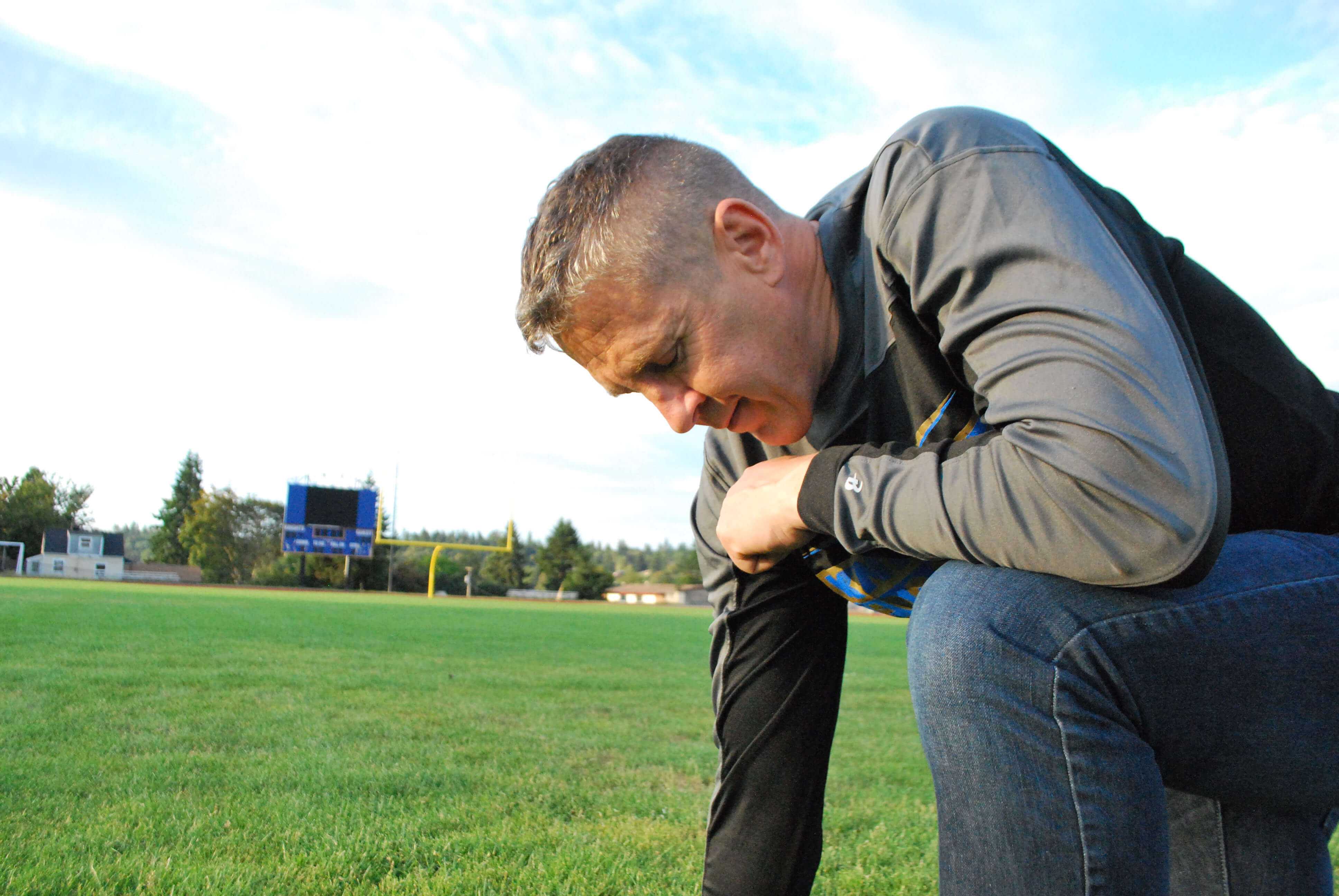
WASHINGTON — Attorneys for former high school football coach Joe Kennedy have filed a petition with the U.S. Supreme Court in hopes that it would accept an appeal surrounding Kennedy’s loss of employment as school district officials decided in 2016 not to renew his coaching contract in the midst of a battle over his desire to pray at the 50-yard line.
“By viewing all speech by teachers and coaches as school speech, the Ninth Circuit converts any religious expression by teachers and coaches into the government’s own religious expression,” the writ of certiorari, filed on Monday, reads, referring to the Ninth Circuit decision that declared that Kennedy’s prayer practice could be considered a government-endorsement of Christianity by onlookers.
“Indeed, by its terms, the Ninth Circuit’s rule admits of no distinction between a teacher leading students in prayer during curricular instruction and a teacher saying a quiet prayer over her own lunch in the school cafeteria. All of it is ‘demonstrative communication,’ and so all of it may be made a firing offense,” it laments.
Kennedy’s attorneys argue that the appeals court’s conclusions do not square with the First Amendment, because “[s]chools are no more entitled ‘to purge from the public sphere all that in any way partakes of the religious,’ than they are to force ‘teachers [to] shed their constitutional rights to freedom of speech or expression at the schoolhouse gate.’”
The petition points to rulings in other states where the personal religious expression of teachers was upheld, including in Pennsylvania, where a court declared in the 2003 case of Nichol v. ARIN Intermediate Unit 28 that “there is no danger that permitting an … employee to wear a cross while working at school will encroach upon the Establishment Clause.”
Read the petition to the US Supreme Court in full here.
As previously reported, Kennedy, the former assistant head coach for the varsity team at Bremerton High School and the head coach for the junior varsity team, was placed on paid administrative leave in October 2015 when he prayed at the conclusion of the homecoming game despite an order to cease his practice.
Kennedy told reporters that he began offering brief prayers on the field in 2008, then praying on his own. He was subsequently approached by several team members who asked what he was doing.
“I was thanking God for you guys,” Kennedy recalls responding. “Then a couple said they were Christians and asked if they could join. I responded, ‘It’s a free country, you can do whatever you want to do.’”
He said that he never asked students to pray with him, but some desired to, including those from the opposing team.
“They just all showed up one day and the next thing I know, the other team was showing up with us,” Kennedy said.
In September 2015, the Bremerton School District launched an investigation into the coach’s practices, and soon sent a letter outlining that some aspects of his religious expression must cease. It noted that Kennedy not only prayed at the conclusion of each game, but also prayed in the locker room with students and staff.
While Superintendent Aaron Leavell acknowledged that “[e]ach activity has been voluntary” and that Kennedy has not “actively encouraged or required participation,” he asserted that the practices were still unconstitutional. He laid out rules so that the district would decrease its chances of a lawsuit, stating that while Kennedy may engage in religious activity, “students may not be allowed to join such activity.”
But although Kennedy agreed to discontinue the locker room prayer, his attorneys with the Texas-based group First Liberty stated that he had done nothing wrong in seeking to pray by himself at the conclusion of each game. They also opined that there is no constitutional violation in permitting students to join.
As Kennedy offered a prayer the following month at the homecoming game, and was voluntarily surrounded by his team and scores of other supporters, he was consequently placed on paid leave unless he agreed not to pray at the 50-yard-line. Months later, in January 2016, the district decided not to renew his teaching contract, effectively putting him out of a job.
In the meantime, the former U.S. Marine turned football coach filed a complaint with the Equal Employment Opportunity Commission, alleging workplace retaliation against his Christian expression in violation of Title VII of the Civil Rights Act of 1964.
In August 2016, Kennedy’s attorneys also filed a federal lawsuit challenging his firing at the high school. However, U.S. District Judge Ronald Leighton, nominated to the bench by then-President George W. Bush, declined to grant an injunction that would have required the Bremerton School District to rehire Kennedy while his case moves forward in court.
Kennedy appealed, but in August 2017, the Ninth Circuit Court of Appeals unanimously agreed with Leighton and likewise declined to grant the injunction.
“In sum, if Kennedy were to resume kneeling and praying on the fifty-yard line immediately after games while in view of students and spectators, an objective student observer would see an influential supervisor do something no ordinary citizen could do—perform a Christian religious act on secured school property while surrounded by players—simply because he is a coach,” it wrote.
“Irrespective of the district’s views on that matter, a reasonable observer would conclude in light of the history and context surrounding Kennedy’s conduct that the district, ‘in actuality,’ favors religion, and prefers Christianity in particular,” the court said.
As efforts to obtain a rehearing were unsuccessful, Kennedy is consequently seeking for the U.S. Supreme Court to take up his case.
“Banning all coaches from praying just because they can be seen is wrong and contradicts the Constitution,” Kelly Shackelford, president of First Liberty, remarked in a statement. “We must protect the right of every American to engage in private religious expression, including praying in public, without fear of getting fired.”
Become a Christian News Network Supporter...


